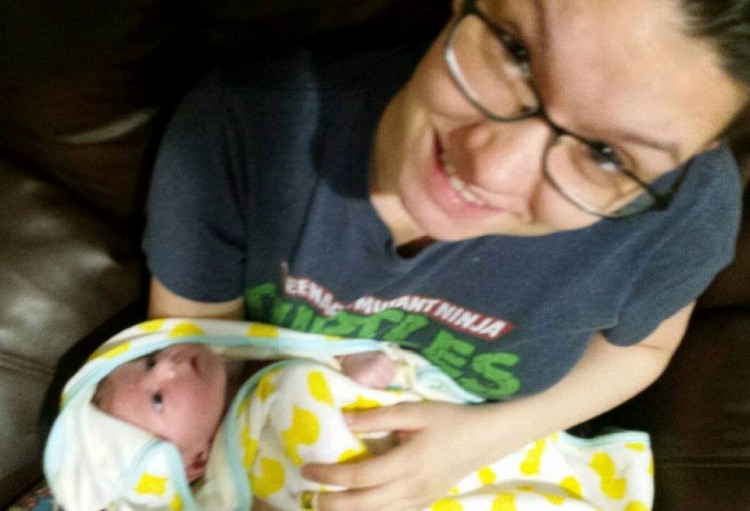 There has recently been a lot more openness concerning the topic of postpartum depression. My Facebook newsfeed has seen quite a few articles about it being “more common than you think.”
There has recently been a lot more openness concerning the topic of postpartum depression. My Facebook newsfeed has seen quite a few articles about it being “more common than you think.”
I’m fairly certain, though, I’ve heard that statement more than most: my psychiatrist warned me about it when I told him I planned to get pregnant, reminded me during the whole year we tried and repeated it throughout the nine months we anticipated Heidi’s birth. When they saw “bipolar disorder” written in my file, all seven of the obstetricians I saw were also prompted to warn me about my increased risk and make sure I was working with someone who could help me with my mental health. One clinic even turned me away because they decided I was too “high-risk.”
Hearing everywhere that “postpartum depression is more common than you think,” I was definitely prepared for it. I even expected it.
No one could ever have prepared me for postpartum psychosis. Postpartum psychosis has a lot of similarities to its depressive friend with a lot more disturbing symptoms.
Here are some examples:
Depression: I worried I wouldn’t be able to protect my daughter and something bad would happen because I’m a terrible person and a horrible mother.
Psychosis: Frank (the man who talked to me telepathically) told me he would come after her if I didn’t harm her or myself, so I worried more.
Depression: I refused to go downstairs to see my family (even if my daughter was down there with them) for weeks after she was born because I thought they hated me and I just got in their way.
Psychosis: I would be petrified when my daughter was downstairs because they didn’t know they had to watch out for Frank. My baby would be hurt or taken away.
Depression: I was a terrible mother and didn’t deserve to keep my child.
Psychosis: And Frank knew it.
Frank constantly told me I was supposed to refuse to eat anything; my body was disgusting — my existence was disgusting. I didn’t deserve to eat. As he told me the only way to protect my baby was to hurt her or myself, I broke my self-harm sobriety. To be frank, Frank was not nice.
I think most people know how serious postpartum depression can be, but they (like me) don’t know at all about postpartum psychosis and how incredibly severe it can be. I was ashamed to hear this voice, to have the thoughts I had, to do the things I did to myself in order to save her. So I told no one. My family-in-law, whose house we live in, had no idea. My daughter will probably never know. Only my husband (and Frank) knew because he was the one to tell me to lie down and sleep multiple times each night when I had to make sure Frank never came, the one to calm my meltdown every time he took Heidi downstairs to be with her grandma, grandpa and aunt. My doctor found out only when my husband became sufficiently concerned for my safety (though I would never hurt my baby) and called him.
Postpartum psychosis brought me such shame. I felt so embarrassed to be suffering with it, but if I had been courageous enough not to keep it secret from my husband for the first few weeks, or more willing to see my doctor as soon as possible, I might have saved myself from a lot of self- and Frank-inflicted pain.
If you or someone you know needs help, visit our suicide prevention resources page.
If you need support right now, call the National Suicide Prevention Lifeline at 1-800-273-8255 or text “START” to 741-741.
We want to hear your story. Become a Mighty contributor here.
Image via contributor.

